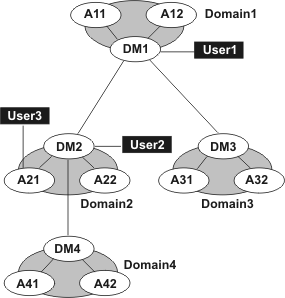stop
Stops HCL Workload Automation production processes. To stop the netman process, use the shutdown command. You must have stop access to the workstation.
Syntax
stop [domain!]workstation
[;wait]
[;noask]
Arguments
- domain
- Specifies the name of the domain in which workstations are stopped.
Because workstations have unique names, the domain is not needed when
stopping a specific workstation. Wildcard characters are permitted.
This argument is useful when stopping more than one workstation in a domain. For example, to stop all the agents in domain stlouis, use the following command:
stop stlouis!@If domain is omitted, and workstation contains wildcard characters, the default domain is the one in which conman is running.
- workstation
- Specifies the name of the workstation to be stopped. Wildcard
characters are permitted.
This command is not supported on remote engine workstations.
- wait
- Specifies not to accept another command until all processes have stopped.
- noask
- Specifies not to prompt for confirmation before taking action on each qualifying workstation.
Comments
If the stop command cannot be applied to a distant workstation (for example, if the TCP/IP path is not available), the command is stored locally in a pobox file, and is sent to the workstation when it becomes linked.
- A user running conman on the master domain manager can stop any workstation in the network.
- A user running conman on a domain manager other than the master can stop any workstation in that domain and subordinate domains. The user cannot stop workstations in peer domains.
- A user running conman on an agent can stop any workstation in the local domain.
When you issue a stop @ command on a domain manager, a local conman stop command runs on the remote CPUs. The command starts running on the lowest stations in the network hierarchy, then finally runs on the domain manager. However, the Symphony file is not updated before the CPUs go down. Therefore, if you issue a conman sc@!@ command from any CPU, the resulting information might be an up to date picture of the states of the CPUs, even of the domain manager.
Examples
Figure 1 and Table 1 below show the workstations stopped by different stop commands run by users in different locations in the network.

| Command | Stopped by: User1 | Stopped by User2 | Stopped by User3 |
|---|---|---|---|
| stop @!@ | All workstations are stopped | DM2 |
DM2 |
| stop @ | DM1 |
DM2 |
DM2 |
| stop DOMAIN3!@ | DM3 |
Not allowed | Not allowed |
| stop DOMAIN4!@ | DM4 |
DM4 |
Not allowed |
| stop DM2 | DM2 | DM2 | DM2 |
| stop A42 | A42 | A42 | Not allowed |
| stop A31 | A31 | Not allowed | Not allowed |